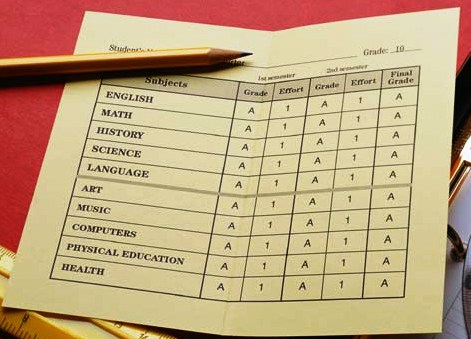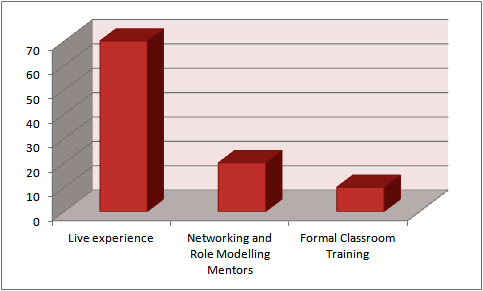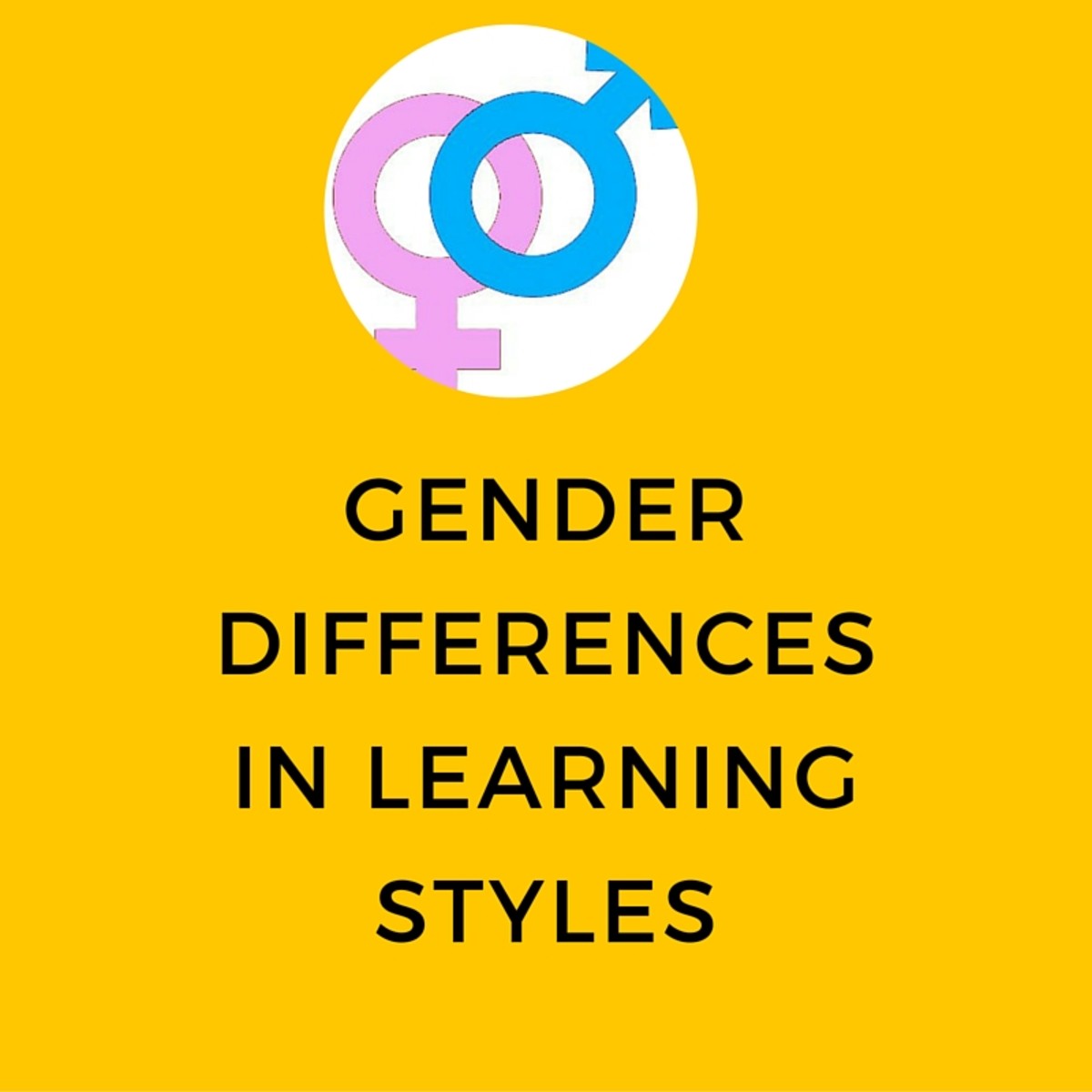Successful College Drop-outs and Relevance of Classroom Training

A large population believes that learning happens in the classroom. In fact, education system is structured on the premise that learning is best achieved in classroom setting, and getting a good report card or Straight As is the ultimate aim of teachers and students. With the emergence of rich and successful college drop-outs such as Steve Jobs, Mark Zuckerberg, Michael Dell, Bill Gates, Sir Richard Branson and Simon Cowell, people are questioning on the relevance of classroom training. New research has also shed light on this myth.
Steve Jobs, apple Inc founder, was complaining about being forced to study a certain amount of subjects his first semester in college before deciding to drop out and find a job in the real world.
Michael Dell did the same thing. He decided to cut short his college years and started Dell Inc (then PC’s Limited) with just US$1000.
Bill Gates too decided to “take leave” from Harvard to run his billion-dollar company, Microsoft Corp.
Billionaire at age 23, Mark Zuckerberg, followed Bill Gates’ footsteps, is another drop out from Harvard.

List of college-dropout billionaires
1. Bill Gates – US
2. Mark Zuckerberg – US
3. Lawrence Ellison – US
4. Eike Batista – Brazil
5. Michael Dell – US
6. Marc Rich – US
7. Ty Warner – US
8. Gautan Adani – India
9. Micky Jagtiani – India
10. Shaid Balwa – India
11. Subhash Chandra – India
12. Vinod Goenka – India
13. PNC Menon – India
14. Roman Abramovich – Russia
15. Sheldon Adelson – US
16. Amancio Ortega – Spain
17. Kirk Kerkorian – US
18. Donald Newhouse – US
19. Francois Pinault - France
20. Jack Taylor – US
21. Joaquin Guzman Loera – Mexico
22. David Geffen – US
23. David Murdock – US
24. Ted Turner – US
25. Henry Fok – Hong Kong
26. Ralph Lauren – US
27. Mohammed Al Amoudi – Saudi Arabia
28. Stanley Ho – Hong Kong
29. Dustin Moskovitz – US
30. Richard Li – Hong Kong
Author's Note : While this list may look impressive, don't forget that we haven't seen the list of billionaires who graduated from college / university. The list maybe longer.
Successful College Drop-outs
Richard Branson, who had dyslexia and poor academic performance, did not even finish high school but managed to make Virgin group of 400 companies, one of the most valuable and bankable brands in the world.
So, were some of them straight As students in high school ? Steve Jobs was so bright in his early school years that his teacher recommended that he jumped several grades, but his parents pulled him back. He was in fact a problem kid in school. Click below to read more :
About Steve Jobs - His Early Years and Education
So, what happened to these people when they reached their college years ?
Don’t get me wrong, I believe in the value of good classroom education. In fact, university years were one of the best times in my life. I would not change it if I can do it again. Condemning formal education is the last thing I would do since my high school and university experiences contributed immensely to my personal, social and professional development.
How Much is Learnt From Classroom Training?
Having sad that, I am also a firm believer that getting my hands dirty on the job is perhaps far more useful than getting a straight As in the report card. Practical experiences often triumphs over the classroom education since people learn better while they are putting their mind and body into doing something.
The common myth is that learning is mainly attributable to course work or formal education. A large population believes that 70% of learning comes from formal classroom training. About 20% comes from networking and role modeling mentors. Live or job experience contributed to the remaining 10%. Believing in this statistic, classroom training is overemphasized to enhance knowledge. Most corporations structure their organization and training team based on this belief such that employees with more classroom training are better and more learnt employees.
However, recently, a number of multinational companies including GE conducted a research (which later validated by a research companies), found out that in fact, only 10% of real learning and growth takes place in the classroom. On the contrary, on-the-job experience, amounting to 70%, contributed to employees’ knowledge, keenness and quickness in understanding and dealing with a business situation in a manner that is likely to lead to long-term career growth. As the assignment and environment getting tougher and more challenging, the more the employees learn and grow.


- Examination and Standardized Testing: How To Improve...
School needs to seriously consider how it assesses its students, confronting the thorny issue of testing. Many students are significantly victimized by society’s evaluation obsession. Life has become excruciatingly hard for some kids to cope with... - Creative Thinking Exercises - How to Think Out of the Box ?
Have you ever wondered why creative thinking or thinking out of the box is such a challenging task to some people or to you? Would you believe that it is your brains that create the obstacle to creative thinking?
So, when is classroom training necessary ?Classroom training will always have its place and relevance. Since classroom training is content-driven, it is important when it comes to introduce and systematically explain the functional and technical matters, and it should be followed by practical work such as on-the-job training. On-the-job learning is invaluable since it changes based on context and situation. Each new project is a new learning experience and an opportunity to grow.
We can see the examples from real life experiences of Steve Jobs, Michael Dell and Bill Gates. They learnt their trade in the field, which constantly changes and evolves. They thrived, learnt and grew through new experiences. The more experiences they accumulated, the greater their learning and growth.
Do We Need to Change our Education System ?
Education system should change to include more action-learning or experiential-based programs. Experiential learning is more context-based and provides deeper understanding and more sustainable learning. Real learning happens when you practice or experience it. Each experience will help the students to contribute to personal, social and knowledge growth. Students should be exposed to hardship and failures, as only if they struggle to succeed, they are more ready when they leave the classroom to face the real world.
If you think you have been spending too much time in the classroom, take some time off to get an internship. Approach a company for a part time job you can start with. You will be surprise to find out how much you can learn in the workplace and gain knowledge, which your professor is unable to present in the lecture hall. You can expect your learning curve to grow exponentially.

Copyright
The text and all images on this page, unless otherwise indicated, are owned by Ingenira who hereby asserts her copyright on the material. Permission must be granted by the author in writing prior to copy or republish this article in print or online.
© Ingenira 2012







